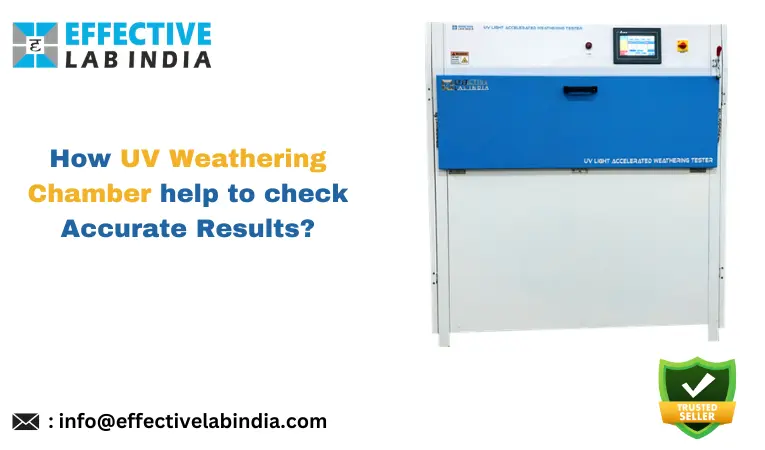Polymers are used by manufacturers widely these days, and although they have attractive qualities, UV radiation has a significant negative impact on them. One can see a change in the material’s chemical and physical properties.
To determine whether the polymers can last all atmospheric conditions, accelerated UV weathering chamber testing is conducted. Polymers are widely used because they are strong, flexible, and lightweight. Therefore, to ensure that the polymers are performing at their best, a UV weathering test is required. For conducting this test, a machine is used which is known as an accelerated UV weathering test chamber.
What is the UV Weathering Chamber?
A UV test machine is used to test the weathering conditions that the products would experience in the real world and then identify any changes to their chemical and physical qualities. In this machine, The specimens are exposed to high temperatures and intense UV radiation, just like they are in the real world. The test is conducted to prevent product deterioration.
To evaluate the material’s performance, this test is conducted under UV radiation. Moreover, this test is crucial for ensuring product development and quality in different industries such as; construction, aerospace, and automotive.
Why is it necessary to test polymers under various weathering scenarios?
Polymers are widely used for manufacturing. As a result, inspecting their quality is necessary before offering them to the customers. Manufacturers can introduce their products into the market and customize them based on the results of accelerated UV testing to verify their durability.
It will guarantee that clients receive high-quality products that live up a long time. Additionally, when businesses introduce high-quality products to the market, they will be able to attract a larger customer base. The alterations brought about by diverse weathering circumstances have an impact on the items’ robustness and longevity. Testing the polymers will therefore assist producers in understanding how well their products work over time. Furthermore, it will assist producers in assessing the lifespan of products
Procedure for Quick UV Testing of the Materials
In this machine, the specimens are subjected to UV radiation to conduct UV testing. Both UVA and UVB photons are intended to exit the UV test chamber. These UVA and UVB radiation resemble sunshine a little bit.
Accelerated UV testing is carried out by following instructions.
- After inserting the specimen into the apparatus, adjust the HMI screen and set the value.
- Turn on and off the spray time to test how long it will take for the spray to reach the specimen.
- Once all the values have been set on the HMI screen, turn on the switches from the screen, such as the rotation, spray, time, heat, and light.
- The instrument’s doors must be closed immediately.
- When the allotted time has come, press the “on” button on the HMI screen, and the machine will shut down on its own.
How Can Accelerated UV Testing Help Companies Build Their Brands?
Accelerated UV testing helps companies in building their name.
It is simple to assess the performance of polymers when they are subjected to the intense effect of UV radiation. It is possible to evaluate how their chemical and physical properties have changed and then design new items in response.
It will be easier to satisfy customers’ expectations when the correct products are delivered to them. Additionally, it will enhance a company’s reputation because all businesses prioritize the needs of their clients, and by using UV testing, businesses can provide their clients with high-quality products.
FAQ
1. What is a UV weathering chamber?
It is an instrument for testing and simulating the effects of UV light on materials, which aids in determining how long they can survive and function.
2. How does it work?
The chamber uses UV lamps to mimic sunlight, controlling temperature, humidity, and light exposure to evaluate material degradation.
3. What materials can be tested?
Commonly tested materials include plastics, coatings, textiles, and automotive components.
4. What are typical testing conditions?
Conditions include controlled UV intensity, temperature ranges (usually 40°C to 70°C), and humidity levels (often 20% to 80%).
5. How is the test data used?
Data is analyzed to observe changes in color, strength, and surface properties, helping to determine material longevity and performance.

